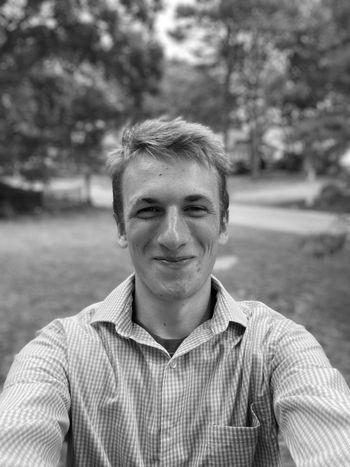Prof says 'all hell broke loose' at Harvard after his study found no racial bias in police shootings
Roland Fryer recently detailed the extreme backlash he says he faced for releasing findings that contradict popular left-wing narratives on policing.
Fryer says that colleagues told him 'Don't publish this,' warning that 'You'll ruin your career.'
A Harvard University professor recently detailed the extreme backlash he allegedly faced for releasing findings that contradict popular left-wing narratives on policing.
Professor Roland Fryer, an economics professor at the Cambridge, Massachusetts Ivy League institution, recently had a conversation with Bari Weiss of The Free Press during which he discussed the violent reaction to a study he published in 2016.
Fryer stated that “all hell broke loose” immediately after he shared his findings.
During his conversation with Weiss, the professor said that the process of conducting the study was rigorous, involving the collection of “millions of observations” of non-lethal force and “thousands of observations” of lethal force. Fryer and his team analyzed the data over the course of “nearly a year.”
Fryer claimed that the findings showed that there was “some” bias in the use of non-lethal force. Specifically, his study found that, “ On non-lethal uses of force, blacks and Hispanics are more than fifty percent more likely to experience some form of force in interactions with police.”
However, Fryer acknowledged during the discussion that there was not “any racial bias in police shootings.” As his study noted, “On the most extreme use of force – officer involved shootings – we find no racial differences in either the raw data or when contextual factors are taken into account.”
Fryer, who was previously the “Chief Equality Officer” at the New York City Department of Education, said that he found this result “surprising” because he “expected” to see racial bias in that area.
During the interview with Weiss, Fryer also recounted that he had colleagues “take [him] to the side” and say to him, “Don’t publish this. You’ll ruin your career.”
Fryer recounted that he asked his colleagues whether they believed the part of the study that found “some” racial bias in the use of non-lethal force, to which they responded, “Yes.” But, when he asked them about whether they believed the part of the study that found no racial bias in police shootings, his colleagues told him to “publish [it] another time.”
To ensure that his study results were robust, Fryer stated that he performed the analysis again. When the study returned the “same exact answer,” which he deemed statistically “robust,” he decided to publish it.
Fryer recounted, “It was a 104-page, dense, academic economics paper with a 150-page appendix.” However, just “four minutes” after sharing it, he received his first criticism: “This is full of shit. Doesn’t make any sense.”
After publishing the study, Fryer recalled that he was forced to live “under police protection for about 30 or 40 days,” including while going to the grocery store, due to the violent threats he says were made against him.
“It was crazy,” he said. “It was really, truly, crazy.”
Campus Reform has contacted Roland Fryer and Harvard University for comment. This article will be updated accordingly.

